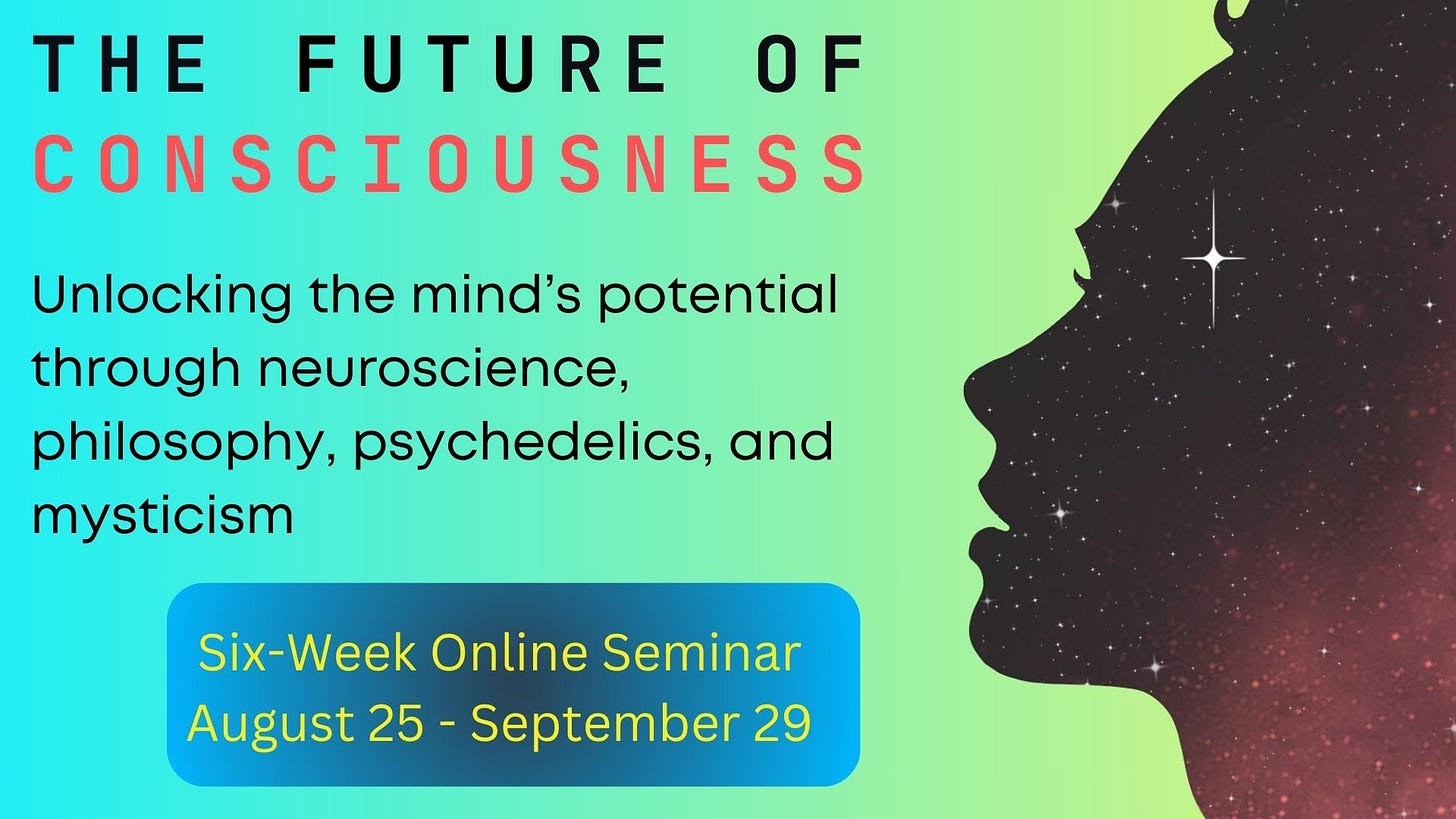The Regenaissance?
As we undergo rapid planetary transformation and technological acceleration, do we find ourselves in a "second Renaissance?"
Last week, I attended a truly wonderful event in Tuscany, Future Horizon, which took place, this year, at the Villa Medici, one of the legendary family’s historic summer homes. The massive villa was a frequent stopping place for Leonardo Da Vinci. It displays one of his strange mechanical contraptions, a device for roasting chicken, along with many delightful ceiling frescos.
Every year, Future Horizon brings together a globe-spanning crew of entrepreneurs, investors, environmental activists, artists, and visionaries, many of whom know each other from Burning Man, Davos, COP, and other such gatherings. My talk focused on my work with psychedelics and my perspective on the paradigm shift from materialism to monistic idealism. Many of the workshops looked at the climate emergency from different perspectives.
We separated into “pods” to undertake mini-design sprints. I worked with the AI pod with some brilliant and inspiring collaborators. We explored how a coalition of indigenous leaders and AI technologists could help to support indigenous cultures and communities.
The link to the Renaissance is intentional. The organizers propose we have entered a second renaissance, or “Regenaissance.” They believe that unleashed human creativity and entrepreneurial innovation can deal with the massive problems we have created through rapid technological and social evolution.
I agree with this idea of a second renaissance, in some ways. For example, I think the shift from materialism to a paradigm that realizes consciousness to be the foundation of reality is a massive turning point for humanity — as significant as the shift from believing the Earth was at the center of the universe to the heliocentric paradigm, which Galileo and Copernicus risked their lives to reveal. Now we know the sun actually revolves around an enormous black hole at the center of the Milky Way, time is relative, and the universe, in any case, is not “locally real.” Recognizing that consciousness, not matter, is the “ontological primitive” will have dramatic consequences, over time.
As many readers know, I struggle with bouts of fatalism and hopelessness about the ecological crisis. I sincerely wish this was not the case. In fact, next month, I am working with friends to organize a live event, Are We Doomed?, in New York City, with the fatalistic ecologist Guy McPherson, anti-war activist Jodi Evans, media critic Douglas Rushkoff, and others. Tickets for our August 25h event are just $10 and include free drinks and musical interludes (TBD). Please join us for this unique event:
When I visit Future Horizons and similar events, my quavering feeling of impending doom is challenged, which makes me happy. There are increasing numbers of highly intelligent, well-resourced people focused on the dire reality of our planetary situation without self-deception. Increasingly, they are approaching it from a more objective, systems-level analysis, which includes critiquing the process of wealth-generation itself. For example, I learned about the Green Climate Fund (GCF), with over $30 billion, investing in plausible solutions such as “Desert to Power,” to build massive renewable energy plants in the Sahel region of Africa.
I thought I would run through my current thinking process, which constantly changes and evolves and sometimes doubles back on itself.
Keep reading with a 7-day free trial
Subscribe to Liminal News With Daniel Pinchbeck to keep reading this post and get 7 days of free access to the full post archives.





